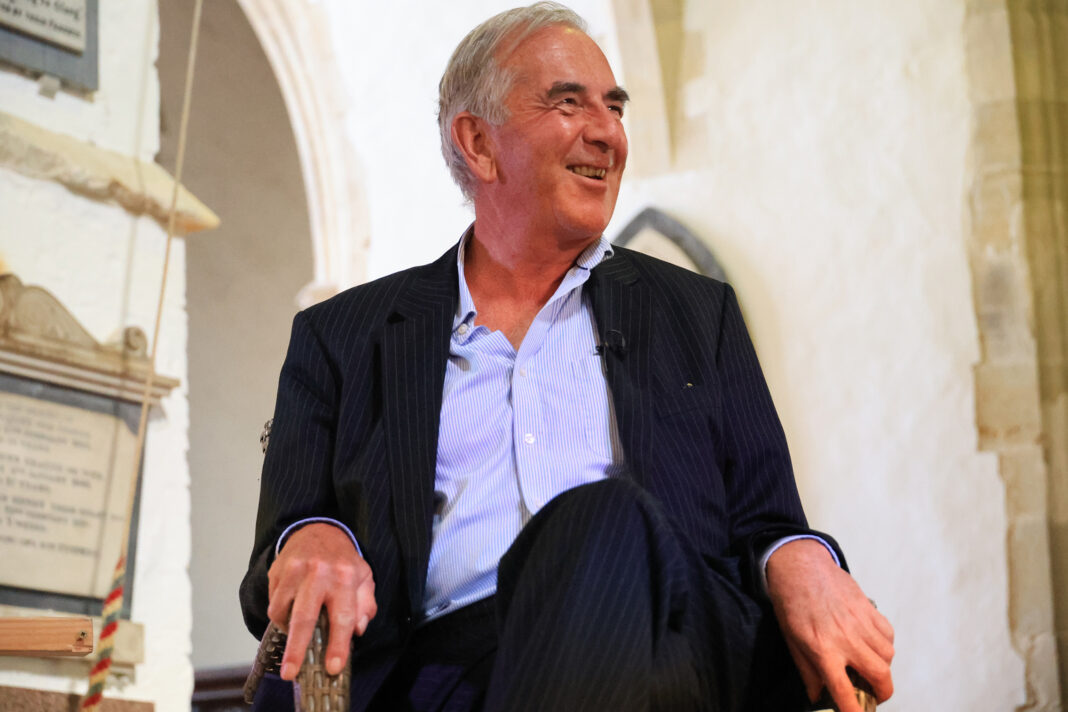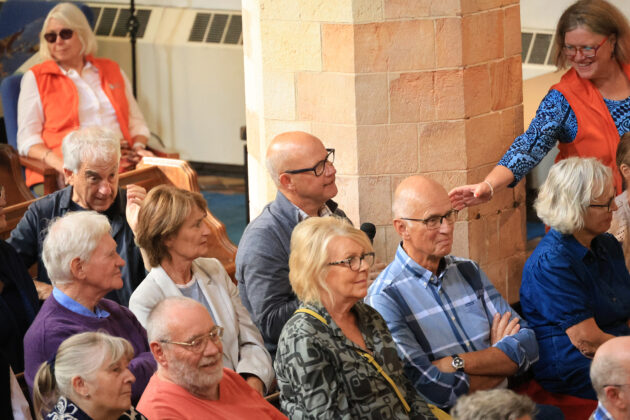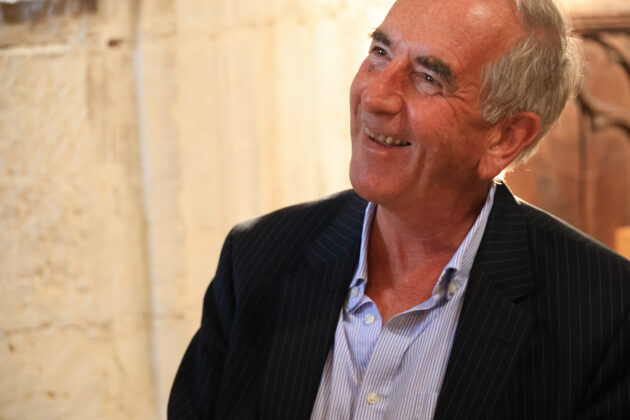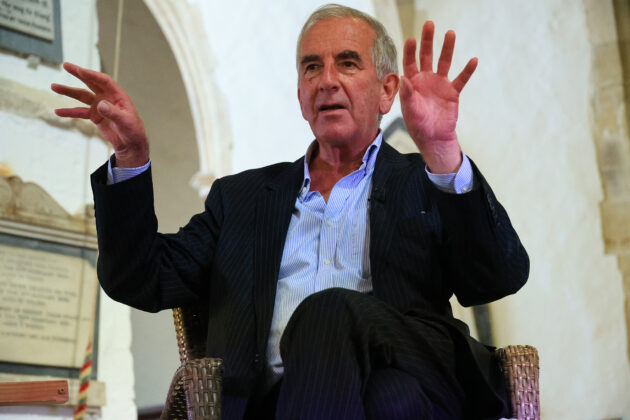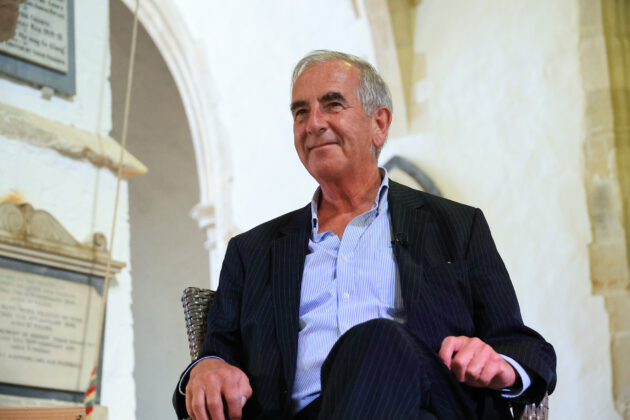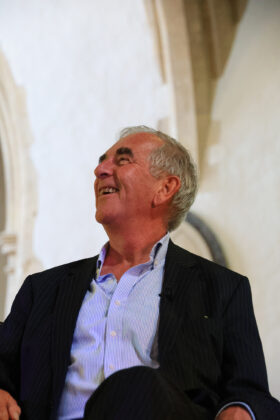As part of the Rye Arts Festival the celebrated thriller writer Robert Harris was interviewed on Thursday September 19 by Martin Bruce, former headmaster of Christ Church Cathedral School in Oxford. Here are just a few of the questions and answers asked and given.
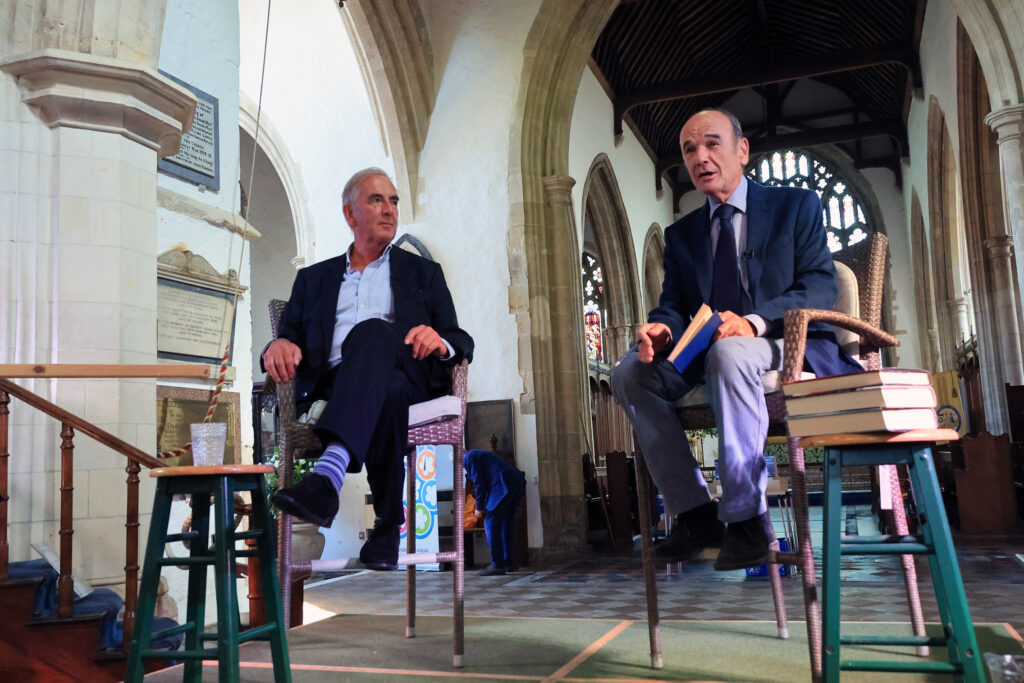
Many of your protagonists have been male but Venetia Stanley in Precipice most definitely is not. Did you enjoy writing a female central character?
I did very much although I wrote a novel a few years ago called V2 which has an important female role, that of a WAF Officer, based on a real-life character. Something to do with the nature of the books that I have written, the politics and particularly the past, has meant that it hasn’t really been possible to write about strong female characters; it was an ambition of mine to do that. Writing Precipice gave me the opportunity. Venetia is to me a fascinating figure, clever, not properly educated really because she had governesses but never went to school and certainly not university. She could hold her own with probably the intellectually cleverest prime minister we have had, Asquith. I don’t think she was a victim in this relationship. I think he became a great pain in the neck to her and she had to find some way of getting out of the relationship. My reading is that she was no-one’s fool and that she enjoyed the attentions of the prime minister, the gossip and the power she may have had. Only as the war intensifies and the pressures on Asquith grew did he become so needy; and anyone would draw back from someone who was demanding to receive letters three or four times a day.
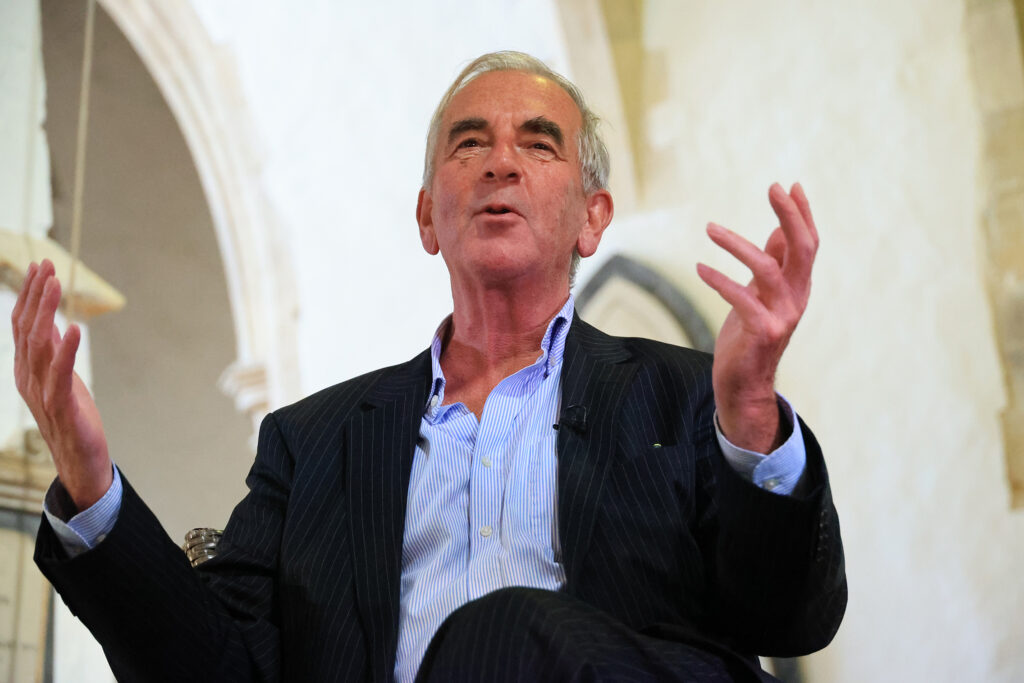
It is extraordinary to think that in 1914 women still were unable to vote and the Liberal government presided over by Asquith was a great opponent of votes for women. In 1914 there is a scene in the book where Asquith goes to the world’s largest munitions factory on Tyneside and sees women filling shells – and there is no doubt at that point that the agreements for stopping women voting collapsed. Without women the war could not be won as they took on the rôles that men normally had done but were away fighting.
For me Venetia is perhaps a representative of an intelligent woman who nowadays would have had a chance to do whatever she wanted but in those days was limited in what she could do. I find that character on the hinge of history very interesting.
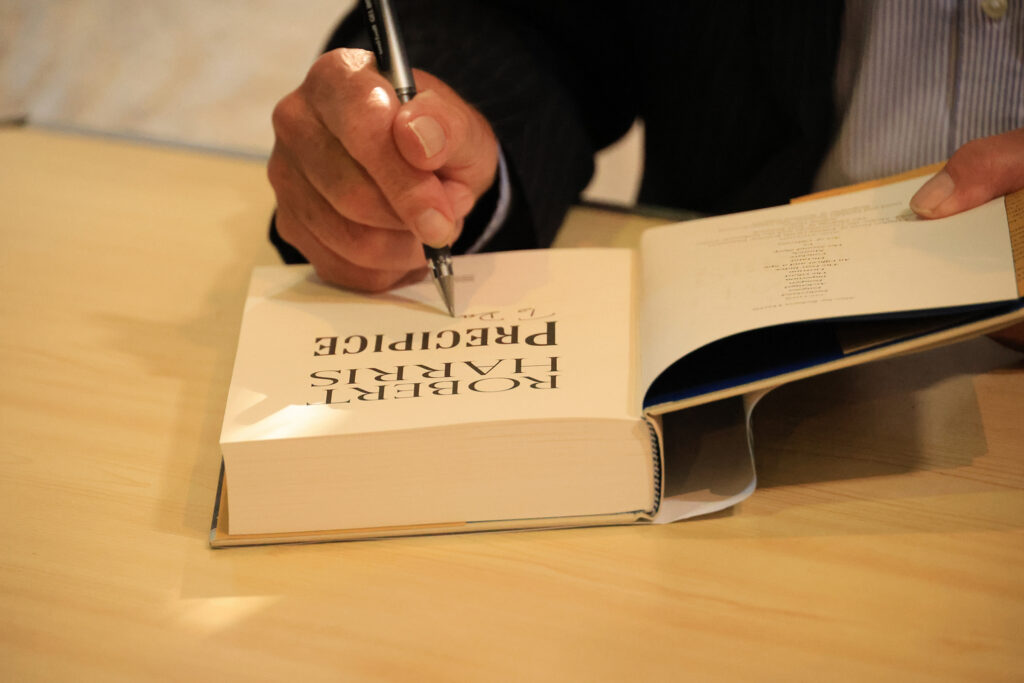
Common to most of your books is, I think, that they would work really well as films. Why do you think that is?
I suppose they tell stories, they take you inside a world. In all nine of my books have been made into films and that’s been great, obviously. It is wonderful to have your work go into a different medium. Sometimes the results make you squirm slightly and on others, such as Conclave which I saw ten days ago, I am really grateful for the talent that has been brought to bear on it. I find as I write I have a vivid mental image in my mind. There is a scene in Precipice where Venetia decides to become a nurse and gets out of a taxi, outside the hospital where she is going for an interview. She pays the cabby, a bus in front of her moves and the hospital is revealed to her. When I was writing it I realised that I was writing a scene from a film. I felt I was almost giving her a stage direction.
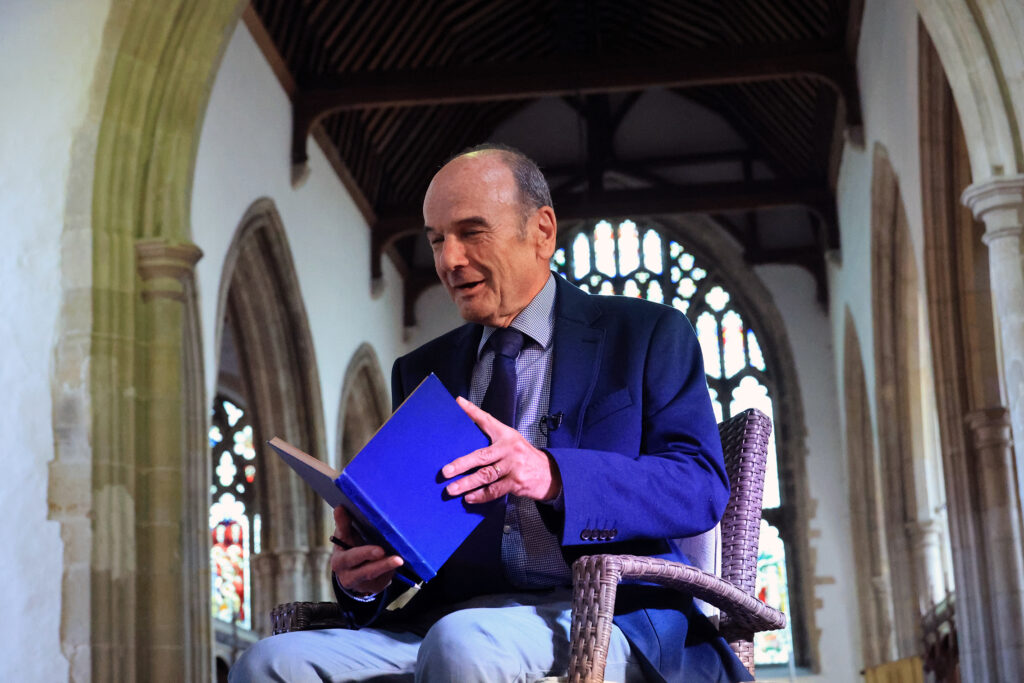
Martin has interviewed Lord David Owen, Michael Rosen and Baroness Hale for the festival in the past and many people have commented afterwards that he is interesting to listen to in his own right and that his questions are just spot on. During his conversation with Robert Harris he entertained the audience but more importantly enabled the listeners to get to know a little better the writer behind the catalogue of outstanding thriller novels.
Image Credits: Kt bruce .



